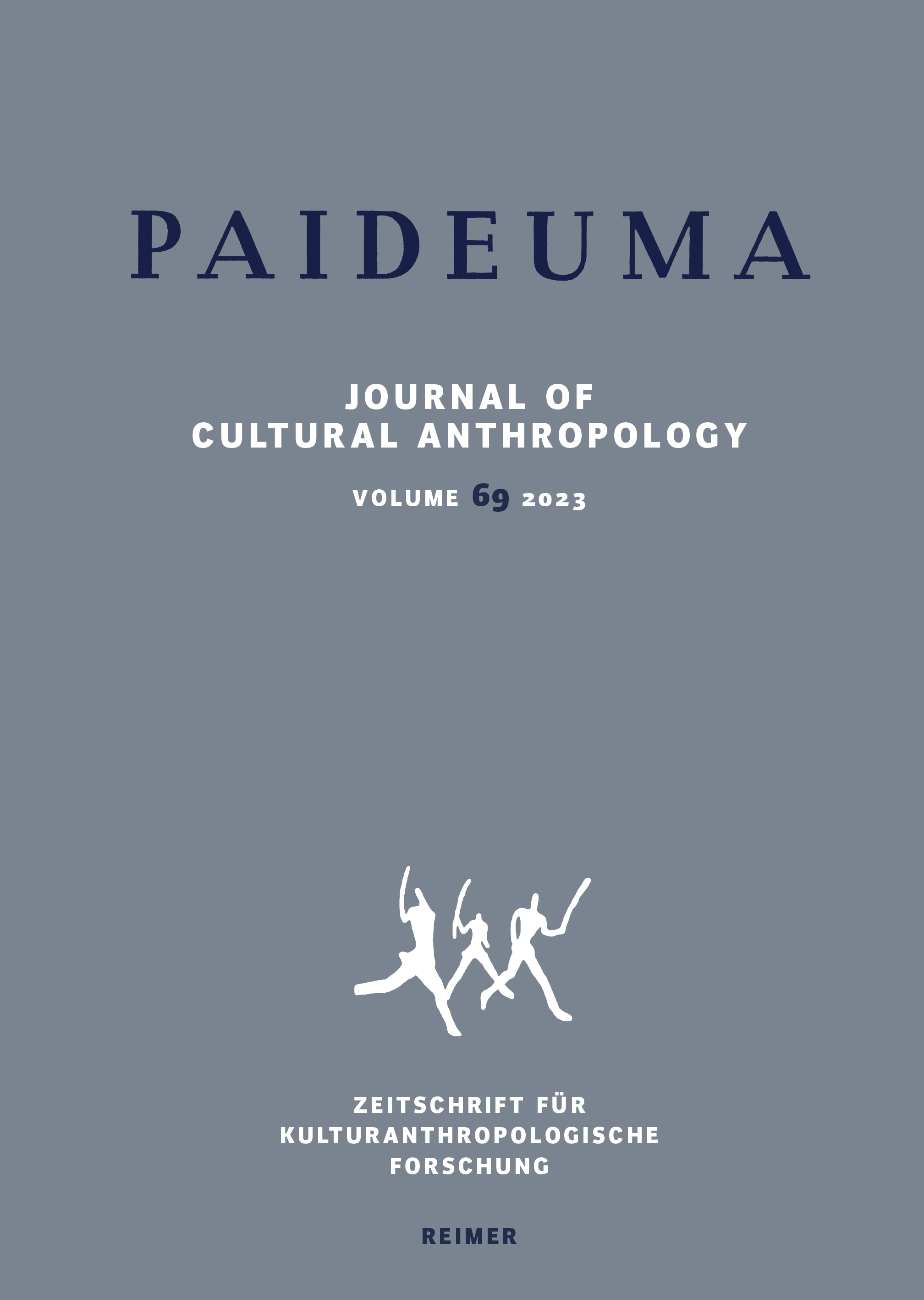Looping effects and extractive industries
A history of affiliation and identity in the Wafi-Golpu region, Papua New Guinea
DOI:
https://doi.org/10.21248/paideuma.880Abstract
It is now well-established in anthropology that resource extraction in Papua New Guinea goes hand-in-hand with reshaping group affiliations and boundaries. This article makes an empirical and theoretical contribution to this widely documented process by recounting and analysing the history of the populations affected by the prospective Wafi-Golpu copper and gold mine in Morobe Province. Empirically, I synthesise existing ethnography, grey literature and oral histories to recount how a history of pre-colonial migration, missionary resettlement, colonial-era census-taking and legal competition resulted in the residence patterns and affiliations that characterize the area today. Theoretically, I build on recent applications of Ian Hacking’s notion of ‘looping effects’ as a fruitful means of analysing these identity-related feedback dynamics near extractive industries in Papua New Guinea. Looping effects involve two intertwined processes: the institutional matrix constructing and acting on bureaucratic categories, and the changes in individuals within categories influenced by the former, but not solely determined by them. This study suggests the existence of sociological factors on both sides of this equation, such as the pace of change in classifications and classifiers, and examines how these factors shape the consequent looping dynamic.
Downloads
Veröffentlicht
Ausgabe
Rubrik
Lizenz
Copyright (c) 2024 Paideuma

Dieses Werk steht unter der Lizenz Creative Commons Namensnennung - Weitergabe unter gleichen Bedingungen 4.0 International.
Dieses Werk steht unter der Lizenz Creative Commons Namensnennung - Weitergabe unter gleichen Bedingungen 4.0.






